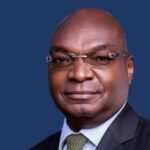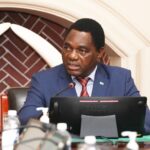Akashambatwa Mbikusita-Lewanika is a notable Zambian politician and a key figure in the country’s political history. As one of the founders of the Movement for Multi-Party Democracy (MMD), he has played a significant role in Zambia’s transition to a democratic political system. Here are 20 essential facts about his life and contributions:
- Early Life: Akashambatwa Mbikusita-Lewanika was born on July 2, 1949, in the Western Province of Zambia. He grew up in a royal family, which shaped his understanding of leadership and governance.
- Education: He studied at the University of Zambia, where he earned a Bachelor of Arts degree. His education laid the foundation for his future political career and activism.
- Early Career: Mbikusita-Lewanika began his career as a civil servant, working in various government positions before transitioning into active politics.
- Advocacy for Democracy: In the late 1980s, he became an advocate for multi-party democracy in Zambia, opposing the one-party state system that had been in place.
- Founding of the MMD: In 1990, he co-founded the Movement for Multi-Party Democracy (MMD), which aimed to promote democratic governance and political pluralism in Zambia.
- Political Role: He served as the MMD’s first national secretary, playing a crucial role in shaping the party’s policies and direction.
- 1991 Elections: Under the leadership of the MMD, Zambia held its first multi-party elections in 1991, resulting in the victory of Frederick Chiluba and the end of the one-party system.
- Parliamentary Career: After the 1991 elections, Mbikusita-Lewanika was elected to the National Assembly, where he represented the MMD and contributed to legislative processes.
- Ministerial Positions: He held various ministerial positions in the government, including Minister of Information and Broadcasting, where he advocated for media freedom and access to information.
- Support for Human Rights: Mbikusita-Lewanika has been a strong advocate for human rights and civil liberties, emphasizing the importance of protecting individual freedoms in Zambia.
- Political Challenges: He faced political challenges and internal party conflicts, leading to his eventual departure from the MMD in the late 1990s.
- Return to Politics: Despite leaving the MMD, he remained active in Zambian politics, participating in various political movements and initiatives.
- Community Engagement: Mbikusita-Lewanika has been involved in community development projects, focusing on education, healthcare, and social empowerment.
- Influence on Zambian Politics: He is regarded as a significant figure in Zambian political history, influencing the country’s transition to democracy and the establishment of multi-party politics.
- Promotion of Cultural Heritage: He has actively promoted Zambian culture and heritage, believing in the importance of cultural identity in national development.
- International Relations: Mbikusita-Lewanika has represented Zambia at various international forums, advocating for democracy and development in Africa.
- Family Background: He comes from a royal lineage, which has contributed to his understanding of governance and leadership within the Zambian context.
- Academic Contributions: He has contributed to academic discussions on political theory, democracy, and governance, sharing his insights through public speaking and writings.
- Legacy in Zambian Politics: As one of the architects of the MMD, he is credited with playing a crucial role in shaping the political landscape of Zambia in the post-independence era.
- Vision for Zambia: Mbikusita-Lewanika envisions a Zambia that is democratic, equitable, and prosperous, with a government that prioritizes the needs and rights of its citizens.
Akashambatwa Mbikusita-Lewanika’s journey as a politician and advocate for democracy highlights his dedication to the progress of Zambia. His contributions to the establishment of multi-party politics and his ongoing commitment to human rights continue to inspire many in the country.






